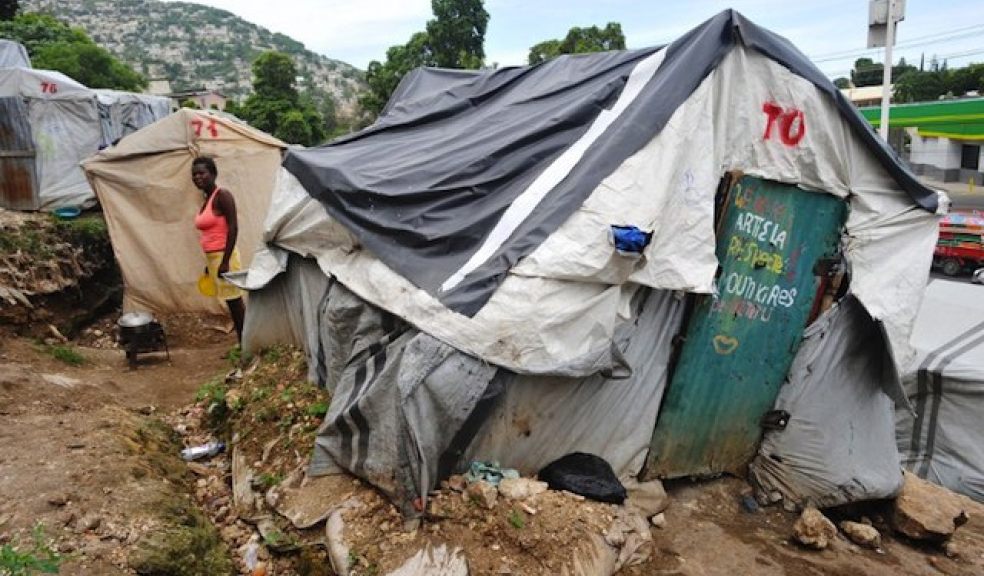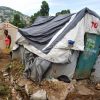
Haiti, an aid crisis, five years on
Nearly five years ago, Haiti was struck with a massive 7.0 scale earthquake that killed up to 300,000, and left 1.5 million homeless. Today however, it remains a country riven with problems, despite the promises of the biggest humanitarian mobilization of a generation.
When the disaster struck in 2010, I went to Haiti, and spent seven months working in the relief effort for an NGO, and saw the destruction first-hand. The reasons for its continuing problems despite massive aid relief lie not a lack of resources, or willing hands, but in the way we treat stricken countries in general. The humanitarian response was unprecedented, commensurate with the scale of the destruction, so what happened to Haiti after the spotlight receded? How many promises were kept, and why, after the aid, is Haiti still in need?
Haiti was not prepared for disaster: the massive earthquake destroyed an already shaky infrastructure, and deepened the dependence of an already aid-reliant nation. In the international response, around $9.3 billion (£5.8 billion) was pledged in aid, but according to the UN office of the Special Envoy to Haiti, only half of it ever made it there. Then, as the streets filled with rubble, the pathway cleared for corruption, as official channels, susceptible to corruption themselves at the best of times, broke down.
Many began to question exactly what was happening with the aid money that was being sent, and indeed, it was difficult to know. According to the Centre for Economic and Policy Research (CEPR), sixty per cent of USAID went untraceably to NGOs, UN agencies, and other firms working in Haiti, making it impossible to know how it was being spent. As an aid worker, I saw the good that the money was doing, and undoubtedly, it saved countless lives. But t seemed that, however noble was the disaster relief effort, something different would surely have to be done to ensure the long-term prosperity of Haiti.
Today, after five long years, 200 000 of Haiti’s people still live in improvised shacks and camps with no water, no sanitation, no electricity, and no means of escape. Ailing with the unbridled metastatic spread of a cholera epidemic, spiralling crime, and intractable social problems, Haiti is incapable of moving forward. The situation that now faces them, and similarly impoverished nations, should prompt a rethink of the way in which we treat disaster stricken countries, and the way we give aid.
The need for aid that focuses on a country’s development, rather than just its relief, has long been recognised, but little original thinking is being done on the subject. All too often, this kind of ‘help’ is given by opening up poorer nations’ markets to encourage trade, although this often only really benefits the patron nations, rather than the recipient; or subsidies are given with punitively restrictive conditions. Poor countries often lack the infrastructure and expertise to effectively establish their position, or use aid effectively.
If countries must establish themselves, and not be trampled by other market agendas, unconditional ‘political aid’ must be given, in the same way as conventional aid is; to assist countries in overcoming corruption, setting up infrastructures, and negotiating a fair position in global economies. It seems one of the single most simple and beneficial way to do this would be to fund independent and unpartisan political bodies and individuals to work for host governments to help them develop these strategies.
The reality is that, if we are to help these nations, we must treat the symptoms and the cause. Aid work in Haiti felt like holding back a tide. Huge progress was made, but now social problems like irrepressible gang crime, aid dependency, and corruption seem sure to bring disaster back onto the heads of the Haitian people, unless governmental and social issues are addressed. Haiti exists on a fault line; how long then, will it be until its people have to face another disaster?
In no way should this detract from the tremendous humanitarian work that saves lives and alleviates the suffering of people most desperately in need. But far too little is done to help countries like Haiti move on. Aid work is a necessary beginning; without it, anything salvaged subsequently would be of little use to a population more than just figuratively buried in their crises. However, aid must germinate into something more if it is to have any longevity. If we truly wish to free countries like Haiti, the emphasis must fall on working with the governments to create a stable society that is capable of taking care of itself.
If we continue to see situations like Haiti’s in terms of how much money we can throw at it, there seems little hope for real change. The questions I found impossible to ignore during my experience working in Leogane were: “If I had donated £10 more, would this change? Perhaps £20? Perhaps £100? How about if we all had? Will things change if I spend another month here? How about a lifetime?” The answer of course makes one wish there was a solution as simple as all that. The same money pledged for relief can be used to fund political aid, increasing relief aid’s effectiveness and, increasing the likelihood of promised aid matching delivered aid. If we ignore this need, we may, however well intentioned, be allowing the betrayal of the very people we set out to help.

















